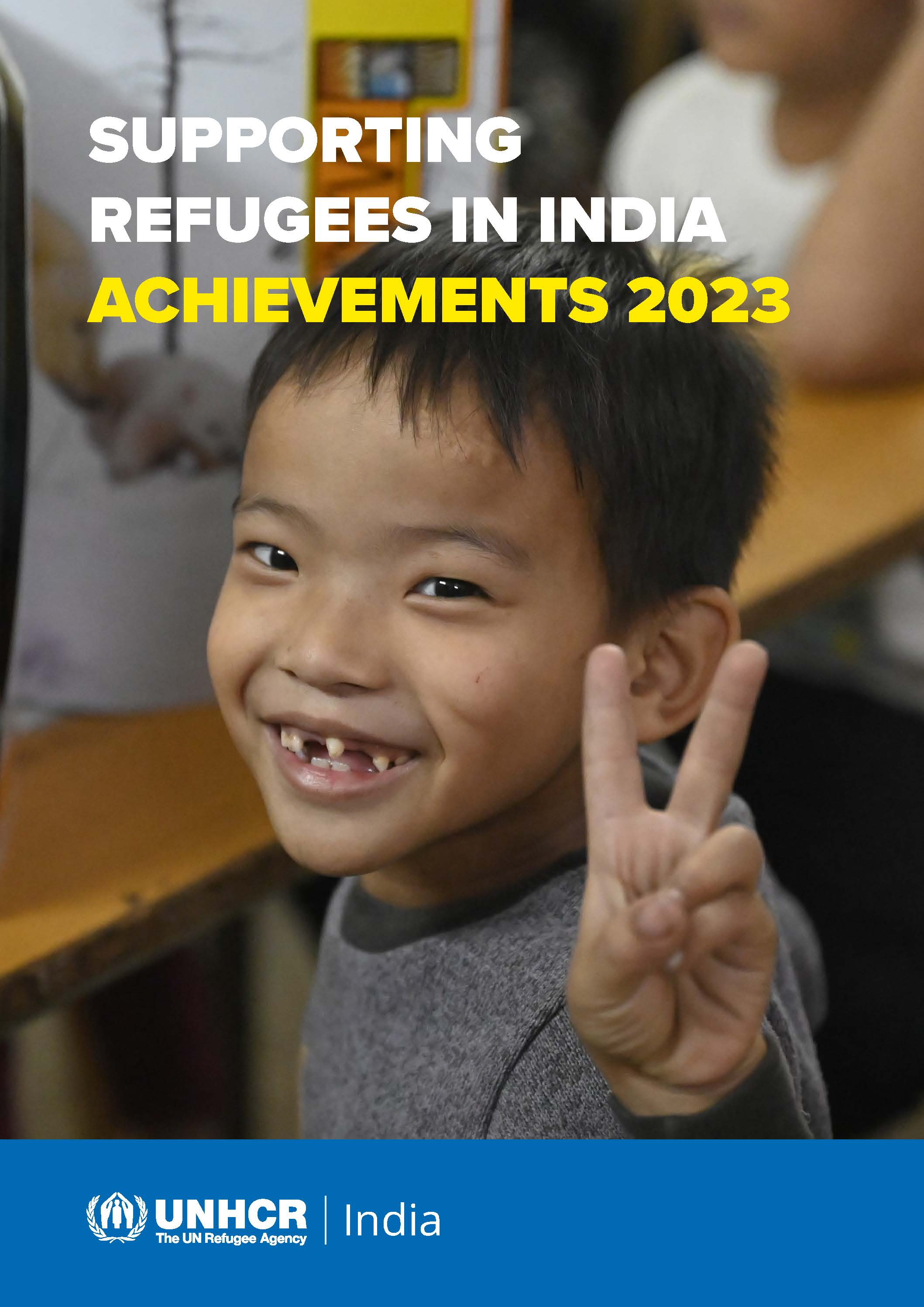UNHCR Global Appeal 1999 - Eritrea
UNHCR Global Appeal 1999 - Eritrea
Basic Facts
What we do
Prepare for the resumption of the repatriation and reintegration of Eritrean refugees from the Sudan.
Who we help
Some 50,000 out of more than 315,000 Eritrean refugees in the Sudan who will be repatriated to and reintegrated in Eritrea. Of this population, nearly 120,000 Eritrean refugees in camps in the Sudan are being assisted by UNHCR.
Our requirements
US$ 1,949,987
Our offices
Eritrea: Asmara, Tesseney.
The Sudan: Khartoum, Es Showak, Port Sudan.
Our partners
Eritrea: Eritrean Refugee and Relief Commission (ERREC).
The Sudan: Commissioner for Refugees (COR), Sudanese Red Crescent (SRC), Human Appeal International (HAI), Benevolence International Organization (BIO), Global Health Foundation (GHF), Ockenden Venture (OV), Islamic Relief African Agency (IARA), Sudanaid, Forestry National Corporation (FNC), World Food Programme (WFP).
Background
Eritreans Living as Refugees Elsewhere
When Eritrea won its independence in May 1991, some 500,000 Eritrean refugees were living in the Sudan. UNHCR helped about 25,000 of them repatriate under a pilot project conducted between November 1994 and May 1995. Another 100,000 refugees were to be repatriated soon thereafter, but because of various political and technical problems, exacerbated by differences in approach between the Governments of Eritrea and the Sudan, the organized repatriation was stalled. In early 1998, the Eritrean Government signalled its readiness to revive discussions on the resumption of repatriation. Meanwhile, UNHCR collected repatriation- and reintegration-related data from among the Eritrean refugees in the Sudan as requested by the Eritrean Government. A high-level mission from UNHCR Headquarters visited Asmara for discussions with the authorities. At the time, Eritrean authorities agreed that they would be ready to resume the operation during the latter part of 1998. Data collected from the Sudan indicated the readiness of some 151,000 Eritreans to repatriate. However, further discussion on repatriation has been suspended due to the border conflict that erupted between Eritrea and Ethiopia and the Eritrean Government's pre-occupation with assistance to some of its population which was displaced as a result of the conflict.
Still, UNHCR is preparing for the resumption of the operation and has targeted 50,000 refugees for repatriation and reintegration in 1999. Depending on progress on repatriation from the Sudan and the readiness of the Government, repatriation of some 2,500 Eritreans from Yemen will also be initiated. An appeal for funds will be issued by UNHCR once repatriation movements begin.
According to the Government of Eritrea, some 200,000 Eritreans returned home spontaneously between May 1991 and August 1998.
Refugees Living in Eritrea
In addition to the repatriation and reintegration programme, UNHCR also assists refugees living in Eritrea. Somali refugees, now numbering around 2,650, have been accommodated in a camp in Assab since 1994. Most are from central and southern Somalia. Some 140 Sudanese refugees live in a camp near Asmara. The Ministry of Internal Affairs is UNHCR's only implementing partner for the refugee programme.
Assistance
UNHCR is the only source of assistance for refugees living in Eritrea. The agency provides food, water, shelter, health and nutrition, education and community services to the refugees.
Protection and solutions
The Ministry of Internal Affairs handles all asylum requests alone, without UNHCR's participation. However, rejected cases have the right to appeal to UNHCR and have their cases reviewed. To enhance the Ministry's knowledge of International Humanitarian Law, UNHCR will provide refugee law training to Government officials during 1999.
UNHCR promotes voluntary repatriation for Somali refugees, who make up 95 per cent of the total refugee population in Eritrea. An organized repatriation will probably occur in 1999, and some 600 Somalis have already registered to be repatriated. There is no prospect for voluntary repatriation for the 140 Sudanese refugees living in Eritrea. Thirty-one Sudanese and Somali refugees have been accepted by the United States Government for resettlement. To ensure free movement of refugees within Eritrea, UNHCR is requesting that the Government provide all adult refugees with identity cards.
Women and Children
Women comprise 48 per cent of the Somali refugee population and 30 per cent of the Sudanese refugee population. Fifty-two per cent of the Somalis and 25 per cent of the Sudanese are younger than 18.
Some Somali women and girls were victims of rape prior to their arrival in Eritrea and remain traumatized by their experiences. UNHCR tries to identify these cases and help them cope. These women are also given priority for resettlement.
UNHCR has offered income-generating activities, including tailoring, basket/mat weaving, and production of handicrafts to refugee women. Somali women have been relatively successful in marketing their products in town.
Primary education is provided for refugee children, as are childhood immunizations, and supplementary and therapeutic feeding for children and for pregnant and lactating women. Indoor and outdoor sports are offered to refugee adolescents.
Environment
UNHCR has given kerosene stoves and cooking fuel to refugees in Eritrea, with the result that the presence of some 3,000 refugees has not resulted in any major damage to their surrounding environment.
Budget US$
| Activities | General Programmes | Special Programmes |
| Food | 336,150 | |
| Transport/Logistics | 88,768 | 37,877 |
| Domestic Needs/Household Support | 105,047 | 6,193 |
| Water Supply | 12,778 | |
| Sanitation | 6,139 | |
| Health/Nutrition | 66,690 | |
| Shelter/Other Infrastructures | 30,036 | |
| Community Services | 8,583 | |
| Education | 14,373 | |
| Legal Assistance/Protection | 11,861 | |
| Agency Operational Support | 132,375 | 55,930 |
| Programme Delivery Costs* | 835,228 | |
| Sub-TOTAL | 812,800 | 935,228 |
| Administrative Support | 201,959 | |
| Total | 812,800 | 1,137,187 |
| Total GP + SP | 1,949,987 |



